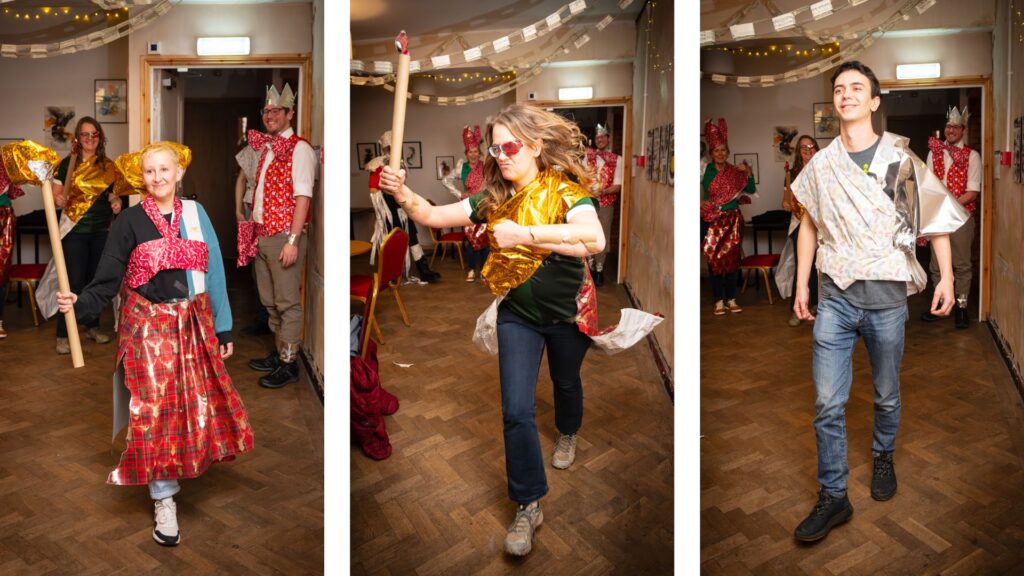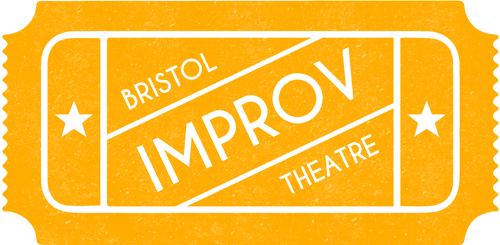What happens at the work do, stays at the work do.
It’s that time of year. The Work do. Love it or hate it, they’ve become a key part of UK Culture and important team bonding.

However, mixing teams and colleagues can be challenging when everyone has different wants and needs. Some people might be ready to hit the punch and tear up the dancefloor whilst others need to leave by 3pm to make the school run. Reliance on booze filled parties may have worked in the past but with numbers of adults choosing sobriety increasing*, Christmas party organisers are turning to more daytime friendly and alternative activities to make work social events more inclusive for everyone.
We’ve put together a list of fun party games to help make your work event memorable!
1. People Bingo
People bingo is a great icebreaker to get everyone talking at the start of an office party.
In people bingo, participants are put in small groups of 3 – 5 people. They are then given a prompt and a time limit to find a shared connection with the group. When they find the connection, they can shout ‘bingo!’ and keep going to the end of the time limit to see if they can find any more connections. After the time limit is over, the facilitator can ask each group to share their ‘bingo’ with the room and award ‘points’ for the most specific or unusual connection!

Example prompts include:
- A place you have all visited
- A food you all enjoy
- A game or activity you played as a child
- A Karaoke song you would sing together (if you had to do karaoke)
- A dance move you’d be willing to share with the room
- An object you have with you that is the same (eg. phone, sock, bottle of water)
Mix the groups in between each round to get everyone talking!
2. Adverbs
Adverbs, a traditional party game made famous by the play ‘Hay Fever’ by Noel Coward, is like a low pressure, inclusive version of charades with faster rounds. Guaranteed to get everyone at your work social event laughing.
In adverbs, one or two ‘guessers’ are invited to leave the room or cover their ears. The rest of the group chooses an ‘adverb’ for them to guess. For example, ‘quickly’, ‘happily’ or ‘angrily’.
When the guessers return, they ask the group to do simple activities in the style of the adverb. For example:
‘Take a sip of water in the style of the adverb’
‘Pretend to answer your phone in the style of the adverb’
‘Wave your hands in the style of the adverb’
The group will perform (at the same time), their version of the activity whilst taking on the quality of the adverb!
The guessers have three guesses to pick the right adverb, and can ask for as many activities as they like. Performers can give clues at their discretion like the first letter of the adverb or if it is close to one of the existing guesses.
What is great about this activity is the bonding and laughter which can come from the ‘performers’ without any pressure on one person to ‘perform’ in front of everyone.
It’s ideal for encouraging playfulness and laughter!

3. Categories
Categories can be played in pairs or small groups. One person is tasked with listing things from a category which is given to them by their teammate (s).
When they run out of ideas for that category, their teammates give them a new one to list.
Example categories include:
- Animals
- Colours
- Things you’d find in a supermarket
- Christmas songs
After a time limit, the lister is swapped and someone else has a go!
Encourage the people giving the categories to give positive body language and support for the lister whilst they are in the role.
- Wise Sayings
4. Wise Sayings
This classic improv game is quick and easy to share at a work event, and will help with team bonding.
For this game, explain that we are going to create ridiculous ‘Wise sayings’ as small groups, one word at a time.
For example: ‘Live, Love, Laugh’ or ‘If a tree falls in the wood, does it make a sound?’
Explain that these don’t need to make any sense. The aim is to say them as if they are deeply wise and profound
When a wise saying feels ‘complete’, the group recognises this by stroking their chin and saying ‘Wise’.
Split the team into small groups (3 – 4 people!) and set them going!
You can invite each team to share their most ridiculous (or profound) wise saying at the end.

5. Fill in the Blanks!
Fill in the blanks – a creative twist on games from ‘Blankety Blank.’
Split the group in pairs or small teams (3-4). Pick a category, or a combination of categories you think your teams will enjoy. Try to include a range of interests to so different categories appeal to different people.
Example Categories:
- Newspaper headlines from the past few months
- Famous film/TV quotes
- Song lyrics (could be a particular genre or something like ‘Karaoke Classics’)
- Office catch phrases
- Statistics
- Poetry quotes
- Wise idioms/ sayings, including from different countries
Invite each team to come up with some phrases / sentences that match the category but replace some key words with ‘BLANK’. Googling allowed for research!
Each team can then test the wider group by reading out their phrase.
Eg. for a category of ‘Wise idioms/ sayings’, a team could offer:
- ‘It takes BLANK to know BLANK’
- ‘This is BLANK to me’ or ‘Das ist mir BLANK’ (German)
- ‘One bowl of BLANK, nine bowls of BLANK’ or Jit wanh BLANK, gao wanh BLANK (Taiwanese)
The rest of the group has the chance to make two guesses. One is an attempt at the correct words to fill in the blanks. The second guess is an alternative version intended to make others laugh!
The original team then gives points to every team who gives the correct answer and then a point for their favourite funny answer.
One person can set up and run this like a quiz but getting teams involved can help collaboration!

There we have it. Some Christmas work party ideas to spice up this years’ event, whether it’s a lunchtime social or an online call.
Looking for something different for your work party this year?
Why not try some workplace entertainment, workshops or playful activities organised by Bristol Improv Theatre?
Check out our Applied Improv page for more information: https://improvtheatre.co.uk/workplace-and-applied-improv-training/
Contact: hello@improvtheatre.com
*49% of UK report being sober in this study from 2022 :https://www.statista.com/statistics/370011/individuals-who-do-not-drink-alcohol-by-gender-and-age-in-england/
Author
Imogen Palmer
